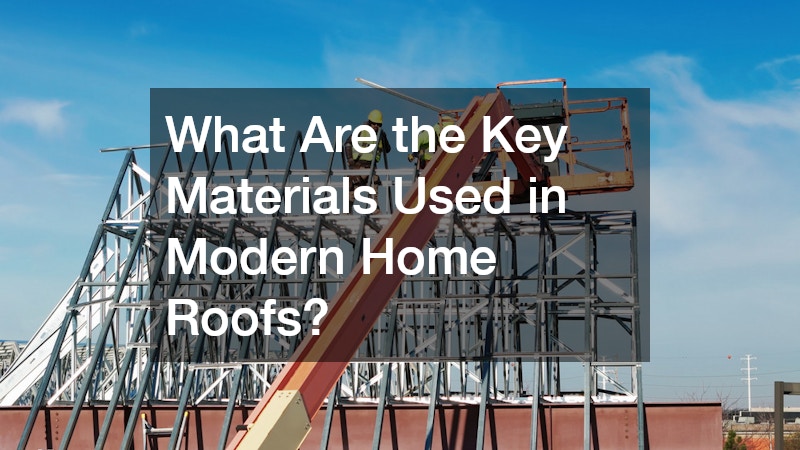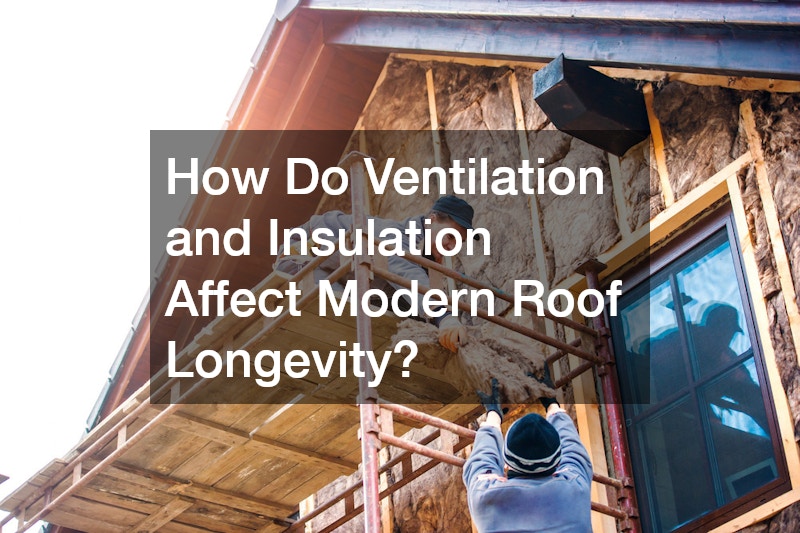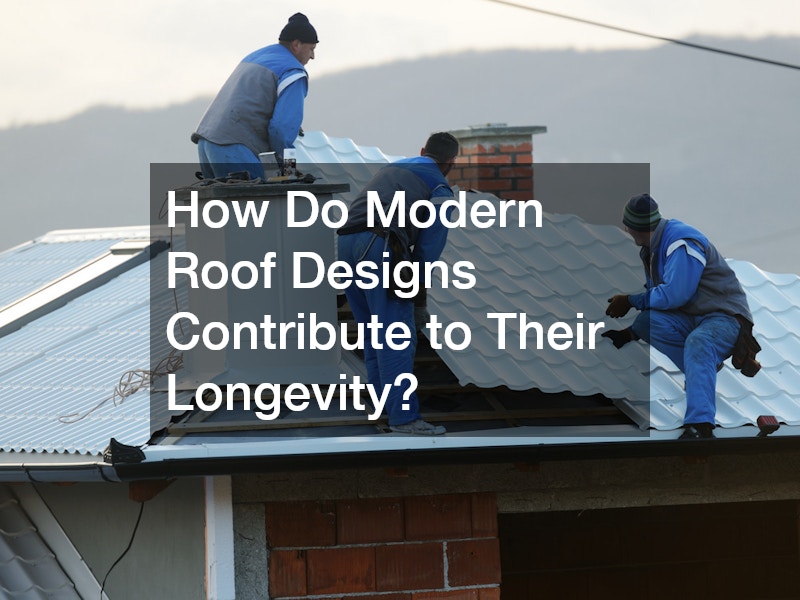How Local Roofers Ensure Modern Home Roofs Last for Decades
Introduction
Modern home roofs are not only a critical structural element but also a key component in maintaining energy efficiency, aesthetic appeal, and long-term property value. A well-constructed roof provides protection from rain, wind, snow, and extreme temperatures while contributing to the overall comfort of the home. Ensuring these roofs last for decades requires the knowledge and expertise of professional roofers who understand both the nuances of roofing materials and the precision of proper installation techniques. Local roofers play a vital role in evaluating, maintaining, and repairing residential roofs, bringing insights specific to regional climate conditions, building codes, and environmental challenges. From selecting durable materials such as reinforced asphalt shingles, metal panels, or composite tiles to implementing precise installation methods, roofing contractors and local roofing companies provide homeowners with peace of mind and long-term value. Regular inspections, preventive maintenance, and timely repairs are essential in detecting early signs of wear, preventing costly damage, and preserving roof performance over time. By collaborating with skilled residential roofers or a trusted local roofer, homeowners can ensure that their roofs withstand environmental stressors, adapt to seasonal variations, and retain both functionality and visual appeal for decades. Investing in professional roofing services is, in effect, an investment in the home itself, safeguarding against leaks, structural damage, and deterioration while maintaining energy efficiency and reducing utility costs. Experienced roofers leverage years of practical experience, local knowledge, and industry best practices to deliver solutions tailored to each property, ensuring that modern roofs continue performing at their peak while enhancing the home’s overall value, durability, and curb appeal.

What Are the Key Materials Used in Modern Home Roofs?
Roofing materials have evolved significantly over the years, moving beyond traditional asphalt shingles to incorporate durable, sustainable, and energy-efficient options. Local roofers and roofing companies often recommend materials that balance longevity with cost, maintenance requirements, and climate adaptability. Asphalt shingles remain popular for their affordability and versatility, while metal panels, composite tiles, and synthetic membranes offer enhanced durability and resistance to weather extremes. In modern residential roofs, sustainability has become a priority, with materials that can be recycled or that offer reflective coatings to improve energy efficiency. Roofing contractors carefully assess each property to determine the most suitable materials based on structure, local climate, and homeowner preferences. Incorporating high-quality underlayments and protective coatings further strengthens roofs against moisture, wind, and UV damage. Local roofers ensure proper installation techniques, including precise layering and fastening, which are critical to extending the life of modern roof materials. By choosing the right combination of materials and installation methods, homeowners benefit from roofs that are not only durable but also visually appealing, environmentally conscious, and capable of minimizing maintenance costs over decades.
How Do Local Roofers Assess the Condition of Modern Roofs?
Professional assessments of modern home roofs are an essential step in maintaining longevity and preventing premature failures. Local roofers employ a variety of inspection techniques, including visual assessments, infrared imaging, and moisture detection tools, to evaluate roof health. Common issues identified during these assessments include damaged shingles, water infiltration, improperly sealed flashing, and signs of structural stress. Roofing contractors also check ventilation systems, insulation performance, and drainage pathways to ensure the roof operates efficiently. Experienced residential roofers recommend scheduling inspections at least twice a year, typically in spring and fall, to identify damage from seasonal weather or accumulated wear. Local roofing companies tailor their evaluations to each property, considering historical weather data, roof pitch, and material type. Early detection allows roofers to perform preventive repairs before small problems escalate into costly replacements. By relying on local roofers for routine assessments, homeowners gain a clear understanding of their roof’s condition, ensuring modern home roofs remain functional, durable, and energy-efficient over their intended lifespan.
What Role Does Climate Play in the Lifespan of Modern Home Roofs?
Climate is a decisive factor in the performance and longevity of modern residential roofs. Local roofers understand that weather patterns, including rainfall, snow accumulation, wind speeds, and temperature fluctuations, directly influence material selection, design, and maintenance strategies. In regions with heavy snowfall, roofing contractors may recommend reinforced underlayment and steep slopes to prevent ice dams, while reflective coatings and ventilation strategies are prioritized in hotter climates to reduce thermal stress. Rain, humidity, and coastal exposure require careful attention to moisture-resistant materials and corrosion-resistant fasteners. Local roofers adjust installation techniques to accommodate these environmental challenges, ensuring roofs can withstand seasonal stress without compromising structural integrity. Seasonal maintenance, such as clearing debris from gutters, inspecting flashing, and monitoring insulation, further enhances roof durability. By leveraging local knowledge, residential roofers provide guidance on adaptive solutions, balancing aesthetics, energy efficiency, and protection against extreme weather events. Homeowners benefit from a proactive approach that minimizes wear and tear, reduces repair costs, and ensures modern home roofs remain resilient year after year.

How Do Ventilation and Insulation Affect Modern Roof Longevity?
Proper ventilation and insulation are critical for the long-term performance of modern home roofs, and local roofers emphasize their role in preventing structural issues. Adequate ventilation prevents moisture buildup, reduces the risk of mold, and regulates attic temperature, which helps preserve shingles and underlayment materials. Insulation options, including spray foam, fiberglass, and rigid foam boards, improve energy efficiency by minimizing heat loss in winter and reducing cooling costs in summer. Roofing contractors balance ventilation and insulation to ensure that roofs operate efficiently without compromising durability. Incorrect installation or inadequate ventilation can accelerate material deterioration, cause ice dams, and shorten the overall lifespan of the roof. Local roofing companies evaluate each home individually, considering attic design, climate, and roof slope to optimize airflow and insulation performance. By integrating ventilation and insulation into a holistic roofing strategy, residential roofers help homeowners achieve both comfort and longevity, reducing energy expenses while protecting structural integrity for decades.
What Maintenance Practices Do Local Roofers Recommend for Modern Roofs?
Routine maintenance is essential for extending the lifespan of modern home roofs, and local roofers provide guidance on effective practices. Cleaning debris from gutters, inspecting flashing, and monitoring roof surfaces for cracks or curling shingles prevent small issues from escalating into costly repairs. Preventive maintenance strategies may include applying protective coatings, resealing joints, and reinforcing vulnerable areas such as valleys and ridges. Local roofers also recommend regular assessments after severe weather events to identify damage caused by wind, hail, or heavy precipitation. Consistent maintenance enhances energy efficiency by preventing leaks and improving insulation performance. Roofing contractors can provide customized schedules based on material type, local climate, and roof design. Homeowners who adhere to these recommendations often enjoy fewer repair costs, reduced downtime, and roofs that remain structurally sound for decades. Partnering with a trusted local roofing company ensures maintenance is performed professionally, maximizing the return on investment in modern home roofs.

How Do Modern Roof Designs Contribute to Their Longevity?
Modern roof designs combine aesthetics with functionality, contributing significantly to durability and long-term performance. Local roofers incorporate structural considerations such as pitch, overhangs, and drainage systems to optimize water runoff and reduce stress on materials. Functional elements, including reinforced ridges, valleys, and high-quality flashing, are integrated into contemporary designs to enhance strength and prevent leaks. Trends in modern roof aesthetics, such as clean lines, energy-efficient materials, and smart technology integration, provide both beauty and practicality. Roofing contractors also employ design strategies that improve thermal performance, reduce wind uplift, and facilitate maintenance. Local residential roofers adapt these designs to the unique environmental conditions of the area, ensuring that roofs remain both visually appealing and resilient. By thoughtfully combining form and function, modern roof designs support longevity, minimize repair needs, and increase overall property value.
How Can Homeowners Identify Roof Damage Early?
Early detection of roof damage is critical to preventing extensive deterioration and costly repairs. Homeowners can monitor for common signs, including curling shingles, discoloration, water stains, or sagging areas. Simple DIY inspections, such as observing the roof after storms or checking the attic for moisture accumulation, provide valuable insight into potential issues. Local roofers recommend documenting findings with photographs and notes to assist professional evaluations. Engaging residential roofers for routine inspections ensures that subtle problems, such as compromised underlayment or damaged flashing, are addressed promptly. Prompt intervention by local roofing companies reduces repair costs, prevents leaks, and maintains energy efficiency. Recognizing early warning signs allows homeowners to collaborate with skilled roofing contractors, ensuring modern home roofs remain structurally sound and functional over their intended lifespan.
What Are the Benefits of Hiring Local Roofers for Modern Home Roofing Needs?
Hiring local roofers provides numerous advantages, particularly when it comes to understanding regional building codes, weather patterns, and material suitability. Local roofing companies offer tailored solutions that address area-specific challenges, such as high winds, snow loads, or humidity-related issues. Supporting local businesses ensures that homeowners benefit from contractors with a vested interest in community reputation, reliability, and accountability. Residential roofers and roofing contractors familiar with the area can respond quickly to emergencies, provide ongoing maintenance, and offer expert advice on roof performance. Local knowledge also helps ensure compliance with municipal regulations and building standards. By partnering with a reputable local roofer or roofing company, homeowners gain personalized service, skilled craftsmanship, and enhanced longevity for modern home roofs. These advantages often translate into cost savings, improved energy efficiency, and peace of mind, knowing that the roof is designed and maintained by experts familiar with the local environment.

What Innovative Technologies Are Roofers Using for Modern Home Roofs?
Roofers are increasingly integrating advanced technologies to improve the durability and functionality of modern home roofs. Solar panel integration, energy-efficient coatings, and reflective materials reduce energy consumption while enhancing sustainability. Smart roofing systems equipped with sensors can monitor temperature, moisture levels, and structural stress, providing real-time alerts to homeowners or local roofing companies. Emerging software tools assist roofing contractors in designing, visualizing, and planning installations for optimal performance and material efficiency. Innovations in adhesives, self-sealing membranes, and impact-resistant shingles further extend roof lifespan. Residential roofers combine these technologies with traditional construction practices to deliver roofs that are stronger, more adaptive, and environmentally conscious. By embracing technological advancements, local roofers ensure modern home roofs remain efficient, reliable, and resilient for decades, meeting both functional and aesthetic expectations.
How Do Warranty and Insurance Affect Modern Home Roofs?
Understanding warranty and insurance coverage is essential to protecting both the roof and the homeowner’s investment. Manufacturer warranties cover defects in roofing materials, while roofing contractors provide workmanship guarantees to ensure proper installation. Local roofers guide homeowners in understanding the scope, duration, and claims process for these protections. Insurance coverage protects against damage caused by storms, accidents, or unforeseen events, and local roofing companies can assist in coordinating claims and repairs efficiently. By selecting contractors who offer comprehensive warranties and guidance, homeowners can maximize roof longevity and minimize out-of-pocket costs. Properly managed warranties and insurance contribute to peace of mind, ensuring modern home roofs remain structurally sound, energy-efficient, and aesthetically appealing over their expected lifespan.
Conclusion
Modern home roofs represent a significant investment in the safety, comfort, and long-term value of a property, serving as the first line of defense against weather, moisture, and environmental wear. Local roofers, residential roofers, and reputable roofing companies play a crucial role in ensuring that these roofs remain durable and visually appealing for decades through expert material selection, precise installation, and customized maintenance strategies. By evaluating factors such as roof pitch, regional weather patterns, and material longevity, roofing contractors can tailor solutions that maximize performance while minimizing future repair costs. Routine inspections, preventive repairs, and a thorough understanding of local climate conditions and building codes are essential for extending roof life and avoiding expensive damage. Innovative technologies, including energy-efficient materials, solar panel integration, advanced insulation, and smart monitoring systems, enhance both the durability and functionality of modern roofs, allowing homeowners to track roof health and detect potential issues early. Partnering with trusted local roofing contractors and actively participating in maintenance programs ensures that problems are addressed promptly, helping homeowners preserve both structural integrity and aesthetic appeal. Additionally, high-quality roofs contribute to improved energy efficiency, lower utility costs, and increased comfort indoors by regulating temperature and preventing drafts or leaks. Engaging skilled professionals transforms modern home roofs into resilient, long-lasting, and visually striking assets that not only protect the home but also enhance property value, curb appeal, and overall peace of mind for decades to come.
